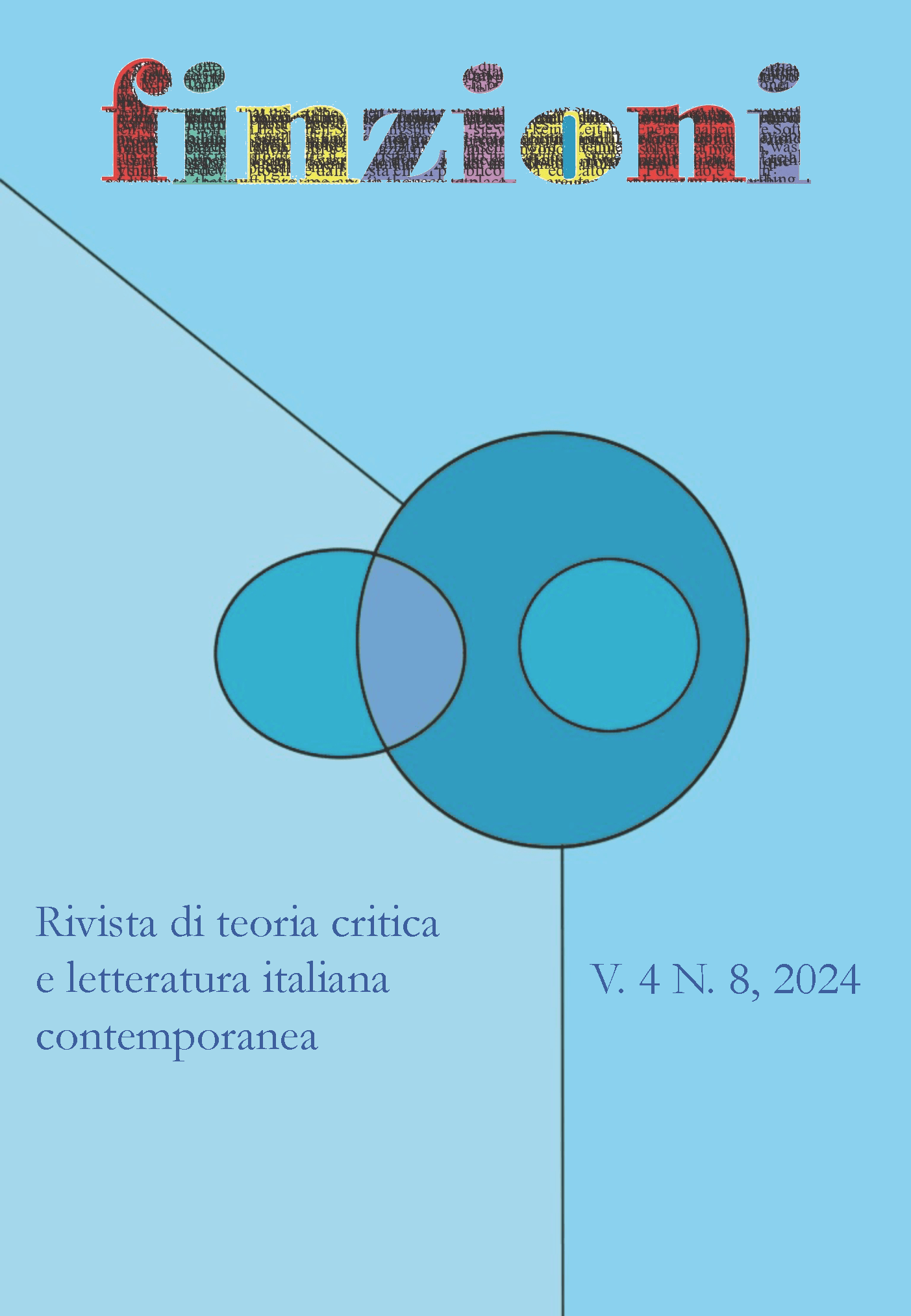The «parlare senza suono» of the ghost. Morselli and the voice as persistence
DOI:
https://doi.org/10.6092/issn.2785-2288/21407Keywords:
voice, Morselli, persistence, dead, phantasmAbstract
In the novel Dissipatio H.G. by Guido Morselli, the disappeared humanity leaves the protagonist with various traces of its persistence, among which the voice stands out. This contribution intends to investigate the voice as the persistence of the phantasm, in the Lacanian sense, and as a presence that goes beyond the end. The voice in Dissipatio H.G. manifests itself in three forms: the recorded voice, like the «phonic-visual wrecks» at the beginning of the novel, the voice of the phantasm, with which the protagonist’s friend manifests himself, and the voice as music. The analysis wants to clarify how the phantasm’s voice is always phoné semantiké, so much that the protagonist states for his friend: «I heard his speaking without sound, I received the meaning». There will also be an opening to a female phoné through the study of the unreleased Uonna, in which the protagonist Fenimore, an intersex singer, is successful due to her superhuman voice. The protagonist of Dissipatio H.G. thinks he is having hallucinations that make him hear the voice of his friend who died before the dissipation, even if he later admits that «it was a living voice». But this is precisely the point: the voice can only be living as the voice of a dead person.
Downloads
Published
How to Cite
Issue
Section
License
Copyright (c) 2024 Sara Nocent

This work is licensed under a Creative Commons Attribution-ShareAlike 4.0 International License.





